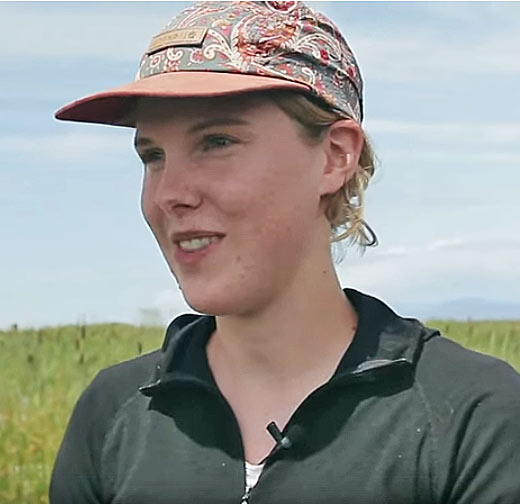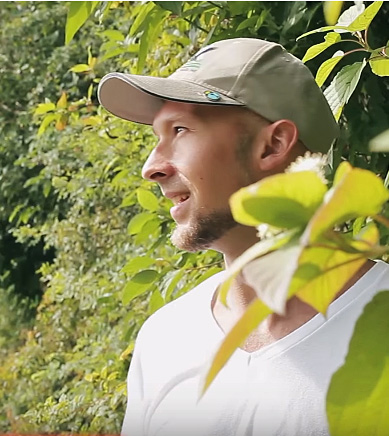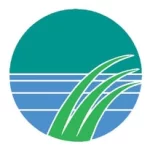British Columbia is currently undergoing a period of rapid environmental change: the province’s accelerated rate of industrial expansion combined with climate change has increased the need for experienced professionals capable of addressing growing environmental challenges. The imminent retirement of a significant percentage of BC’s current conservation experts has upped the urgency in cultivating the next generation of fish and wildlife professionals. Training for these hands-on careers requires moving beyond the classroom and out into the field. As part of HCTF’s commitment to building a better future for BC’s fish, wildlife and habitat, we’ve helped fund paid summer internships for BCIT students in the Ecological Restoration Program. These internships provide invaluable real-world experience for students as they work alongside professional biologists from HCTF partner organizations. In the following video series, you’ll hear from students and their mentors about the benefits of this program for building conservation capacity in BC.
After you’ve watched the videos, scroll down for a more in-depth conversation with the students about their experiences with the internship program, and some advice for young people considering a career in conservation.
Part 1: Introduction
Part 2: Delta Farmland Project
Part 3: Grauer Wetland Project
Meet the Interns
Emma de Groot
Emma is a second year student in the Ecological Restoration program at the British Columbia Institute of Technology. Emma grew up in Vancouver, and prior to attending BCIT, completed an undergraduate degree in Biology and Environment, Sustainability and Society at Dalhousie University.
 What inspired you to study fish/wildlife/habitat biology?
What inspired you to study fish/wildlife/habitat biology?
Spending time outdoors was what inspired me to study biology and ultimately restoration ecology. Every summer while I was growing up my family and I would road trip from Vancouver to our wilderness cabin on Lac La Ronge in Northern Saskatchewan. We would spend weeks there fishing, exploring the wilderness and swimming in the freezing cold lake. The experiences I had there away from the city, connecting with nature were instrumental in my desire to pursue environmental studies as a career.
Why did you apply for this internship program?
There are lots of hands on learning opportunities at BCIT – the Ecological Restoration program takes us out of the classroom to participate in the work that we will hopefully be one day doing ourselves. The summer internship program provided an opportunity for extended work experience that helped me prepare for our future in the industry. I jumped at the chance to add to the knowledge I have already gained from the program.
What projects did you work on as part of this internship?
My internship was with Ducks Unlimited Canada. I have been working with them on a diversity of different wetland projects in the Lower Mainland and on Vancouver Island. One of these was the long term monitoring of restoration work completed on the Grauer lands in Richmond. The area was recently restored back into a salt marsh by excavating new ponds, building up islands and planting marsh vegetation. I helped conduct vegetation surveys in the Grauer salt marsh to evaluate the success of the plantings and determine what other vegetation was growing. These consisted of looking at 1 m2 quadrat areas and identifying all the vegetation within the square and its percent cover. The information derived from these surveys can be used to determine whether the restoration was successful and if there is a need to do more work on the site. We also were tracking the movement of large wood through the salt marsh. This entailed going on a scavenger hunt for marked logs and recording their GPS coordinates. While some wood is necessary for adding complexity to the site, the entire area was being choked out by all the wood that was present. The restoration entailed pilling up the wood onto islands, which would allow marsh vegetation to grow in the opened up areas. The wood that was left is being tracked in order to evaluate natural movements of large wood across the salt marsh.
I had never spent much time in salt marshes prior to working on this project. It was interesting to learn how to identify the different vegetation and learn about their unique adaptations of dealing with the brackish environment.
What was it like working with Ducks Unlimited Canada (DUC)?
Working with the DUC staff in the Vancouver office has been a very enjoyable experience. They all have a passion for the work that they are doing that I found inspirational.
Why do you think the work that DUC is doing is important?
Wetlands are some of the most productive ecosystems on earth and are critical habitat for a great diversity of species. Protecting wetlands is incredibly important not only to preserve the species that depend on them but to ensure they continue to perform those ecosystem services that we take for granted. DUC is at the forefront of protecting wetlands across Canada so that everyone can benefit, not just ducks!
What has been your favourite part of the internship?
My favourite part of the internship has been getting the opportunity to work outside and learn about wetlands. DUC manages many different wetland types in the Lower mainland each one offering unique habitat characteristics. Understanding and meeting the variety of needs of these wetlands made each day on the job interesting and challenging.
Do you think the internship has been a valuable experience? Do you think hands-on experiences (like the work you’re doing as part of this internship) are an important component of learning?
The internship with DUC has been a very valuable experience. When studying the environment there is only so much that can be learned in the classroom, it takes getting outside and getting your hands dirty. The internship taught me lots of valuable information and skills as well as reinforced knowledge I had already gained in school. I think it is important for any one studying this field to get the opportunity to gain real job experience out of school.
What would you tell middle and high school students that are interested in a career in this field? Did you know this is what you wanted to do when you were in high school?
The best advice I can give to anyone interested in this field is to get outside and experience nature! A connection to the environment is not something you can learn in a classroom, it takes going out and learning about and loving the natural world around you.
Do you feel hopeful that your generation is going to be able to work towards solutions for some of the conservation challenges we’re facing?
I am optimistic that my generation will be able to work towards solutions for the conservation challenges we are facing. There is so much more awareness and willingness to take action in the younger generation concerning issues surrounding the environment. It is going to take ingenuity and hard work but I am confident we can do it!
.
.
Arthur Kujawiak
Art is a second-year student in the Ecological Restoration Degree Program at BCIT. Art grew up in Abbotsford, BC, and previously completed a Diploma in ‘Fish, Wildlife, and Recreation’. Art spent the summer working with the Delta Farmlands and Wildlife Trust, a long-time HCTF grant recipient working to preserve farmland and wildlife habitat on the lower Fraser River delta through co-operative land stewardship with local farmers.
 What inspired you to study fish/wildlife/habitat biology?
What inspired you to study fish/wildlife/habitat biology?
I’ve always been intrigued by wildlife. As a kid, my friends and I spent a lot of time exploring trails in the undeveloped forests behind our houses and all over Abbotsford. My parents used to take me and my brother hiking, camping and adventuring across BC. I think that combination of experiences helped to give me this love of nature, an appreciation of its value, and an urge to protect it.
Why did you apply for this internship program?
It’s a great opportunity – there are certainly other summer jobs available for students, but very few allow you to gain hands-on experience and such a broad spectrum of applicable skills.
What projects did you work on as part of this internship?
I worked with the Delta Farmland and Wildlife Trust studying the diversity and abundance of bird species in the Trust’s farmland hedgerows. This study looks at what effect hedgerow age and other characteristics have on bird usage of those hedgerows. I’d walk the hedgerows, listening carefully for any bird activity within 50 meters. We’d identify the species, number of individuals, their behaviour, and whether they were in the hedgerow or likely just associated with adjacent habitat.
What did this experience add to your classroom learning?
One thing I’ve found is that you can study pre-recorded bird songs until you’re familiar with dozens or even hundreds of them, only to find that when you’re finally out in the field, the birds make variations of those sounds and have different ‘dialects’ from the ones you learned – it’s a bit of a steep learning curve!
What was it like working with Christine (of the Delta Farmland and Wildlife Trust) on this project?
Christine is great to work with. I really couldn’t imagine someone who’s better suited for her position. She’s always cheerful, friendly, and very knowledgeable. You can tell she’s really passionate about the work she does and she brings a lot of her own agricultural experience to the table.
Why do you think the work that the Delta Farmland and Wildlife Trust is doing is important?
In addition to providing habitat for birds migrating on an important international Flyway, the habitats that they are creating and preserving benefit other human needs as well. Hedgerows benefit farm fields by providing habitat for beneficial insects such as pollinators. Wetlands act like kidneys by filtering out pollutants to give us naturally purified drinking water. So as the human population grows, the work that conservation organizations do becomes even more important.
What has been your favourite part of the internship?
I get to be outdoors, with fresh air and morning sunrises. Work is almost literally a walk in the park to listen to the birds sing.
Do you think the internship was a valuable experience? Do you think hands-on experiences (like the work you’re doing as part of this internship) are an important component of learning?
Absolutely. You can spend weeks in a classroom learning theory, but having hands-on experience really helps bring it all together and locks in that skill set.
Did you know this is what you wanted to do when you were in high school?
Honestly, this never occurred to me as an option until maybe a decade after I graduated high school. I feel that it’s not uncommon to be unsure of what you want to do with your life when you’re a teenager.
What would you tell middle and high school students that do think they might be interested in a career in this field?
Well, if you’re still in high school then take some biology courses to keep that door open. I also recommend going for the Fish and Wildlife course at BCIT as it gives you a lot of the basic skills and knowledge that we need and use, it satisfies the prerequisites for getting into the Ecological Restoration Program, and it’s a lot of fun!
Where do you hope your career takes you?
You know that saying that goes ‘if you find a job you enjoy, you’ll never work another day in your life’? Well, if I could combine that with a career that has me doing and learning new things and exploring new territory – that would be ideal.
Do you feel hopeful that your generation is going to be able to work towards solutions for some of the conservation challenges we’re facing?
I’m optimistic – We have a lot of bright minds in our younger generations who see the value in protecting the environment. And with newer, green technologies, the right leadership, increased public awareness, and the implementation of the right environmental initiatives, I feel that we can do a lot of good.
Many thanks to Art Kujawiak, Emma de Groot, Dr. Ken Ashley, Christine Terpsma, Eric Palm, and Dan Buffet for participating in the filming of these videos, and thanks to Rod Hsu of Fishing with Rod for putting them together. The summer internship program was co-funded by HCTF and a grant from Rudy North to the BCIT Rivers Institute, with partnership funding from the Delta Farmland and Wildlife Trust, Ducks Unlimited Canada, Squamish Watershed Society, Fraser Valley Conservancy, and the BC Conservation Foundation.






